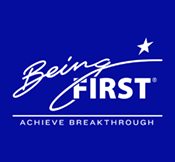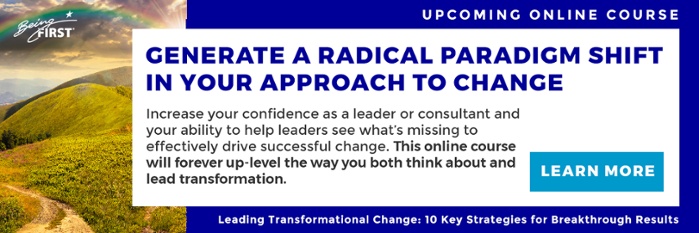I hear change management specialists saying all the time things like, “It all comes down to people. If our leaders would just focus on people, then our transformational change efforts would all succeed.”
I know that many professionals believe those words.
For me, they give me heartburn.
If you know me, then you realize that I am a HUGE people fan. I believe in people. I promote the message to leaders to put more attention on people in their change efforts. And I stand for social justice being one of the two critical values going forward for our global community (the other being environmental sustainability).
But the formula for successful transformational change requires more than just a generic focus on people.
Get specific for real transformational change
You can focus on many different aspects of “people,”e.g., their behaviors, attitudes, skills, level of involvement, communications, mindsets, roles, compensation, or decision authority.
What aspects are we speaking about when we say we need to focus on people?
Change management focuses on resistant behavior, communications, and stakeholder engagement, and most leaders today use some sort of change management support. But research shows 60-70% of change fails.
Clearly this “people” approach is not adequate for change that is transformational.
"Mindset" as a subject
If you include mindset and culture in the transformational change equation, then I start to get behind the idea, as they are critical “people” dynamics, but also, not enough.
First, many mindset approaches focus on mindset as a thing to talk about. This is much different than having leaders and staff actually do personal transformation work on themselves that actually shifts their mindset.
Talking about mindset as an object does little. Working with your own mindset as a subject can do a lot. Which are we talking about?
Make transformational change ongoing
Sometimes referring to people means engaging in more change communications and stakeholder engagement. All great stuff, but there are many forms of each.
For example, just telling employees more information isn’t enough to make much of a difference with communication. Shifting from one-way dissemination of info to two-way dialogue helps, but if delivered as one stand alone event, there won’t be much improvement.
If treated as an ongoing process, with multiple vehicles, messages and forms, then communications can make a big difference with people.
Similarly, stakeholder engagement is all the rage, but engage in what, how, when? All this makes a difference to the ultimate impact on people and change results.
And don’t forget the design of the change process.
It can severely impact results from transformational change, sometimes even more than human dynamics do. When your change leaders do not stop work and keep adding change to people’s already overflowing workload, no matter how much you communicate and engage, you won’t get great results from your change initiative.
In fact, if you don’t handle the capacity issue, people will not want to hear about the change or be engaged in it.
Let’s get wiser.
Let’s get more discerning.
Let’s look beyond the politically correct notions of simply saying we need to "focus on people more," and address specifically how we need to focus on them to deliver extraordinary results from our change efforts.
What aspects of the “people” leg of the stool do you think are essential in successful transformational change?
Related Video:
Dr. Linda Ackerman Anderson and Dr. Dean Anderson discuss what transformation is and explore the critical areas of a transformation strategy that ensure success.




